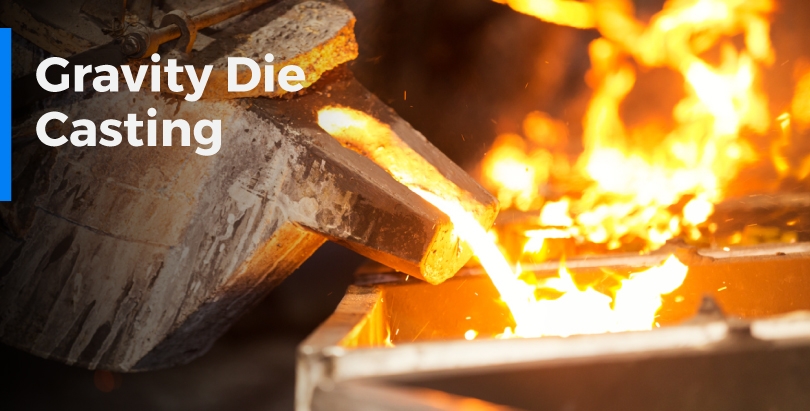- Home
- Factories
- Processes
- Products
- News
- Download
- Contact Us
Views: 13 Author: Site Editor Publish Time: 2022-09-23 Origin: Site

How does the gravity die casting process work?
Gravity die casting is one of the earliest invented processes of metal and light alloy die casting. In this fully automated process, molten metal is poured directly from the ladle into a semi-permanent or permanent mold. The goal is to fill the mold with minimum turbulence through one or more channels to reduce oxidation and foaming. This minimizes the porosity and inclusions, and makes the final casting have the best metal properties. Gravity die casting equipment can have a vertical or horizontal die opening, or 0/90 or 0/120 tilting technology provides an alternative. For tilt die casting, the metal flow at the entrance of the die is controlled by the tilt angle and speed of the die.

Advantages of the tilting gravity die casting process
One of the advantages of inclined gravity die casting is that it can produce dense and high-quality castings with excellent mechanical properties, such as strength and rigidity. This makes it very suitable for demanding automotive applications such as braking system and suspension components. The main advantages of gravity die casting technology include:
1. It is suitable for mass automated production
2. Minimum investment required for small and medium-sized batch production
3.The produced parts have excellent mechanical properties and are also suitable for heat treatment.
As the sand core can be placed in the mold, gravity die casting can also produce parts with complex shapes.

Application
Gravity die casting technology is an ideal choice for the production of aluminum castings of various complex automobile parts, such as turbocharger, brake caliper, steering knuckle, engine cylinder head, engine block and piston. It is also suitable for many other industries, from lighting elements to kitchen tools.
| | Floor 21, Block B, Fortune Building, No. 18 Xinghua Bei Street , Tiexi District, Shenyang, 110025, China. |
| | 86 15541524932 |
| | contact@sydensen.com |